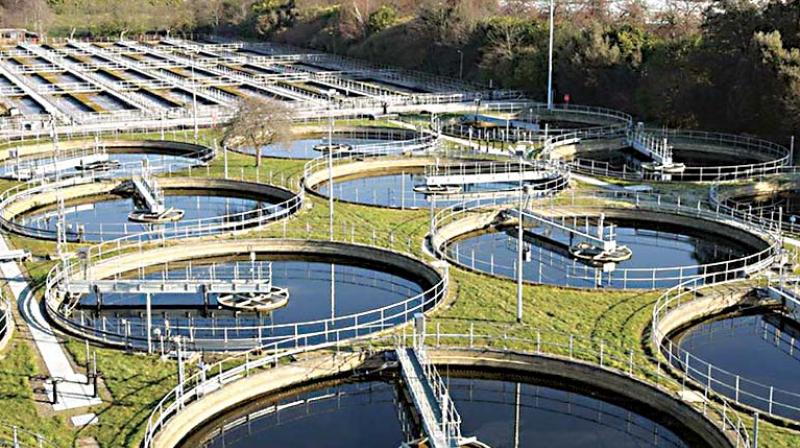DC Exposé: KSPCB plays dirty? Order to shift STP eyewash!
The recommendation for the relocation of an STP is a first of its kind, said government officials and activists, not hiding their incredulity.

Bengaluru: In what appears to be a dubious order, the Karnataka State Pollution Control Board (KSPCB) has given a "partial" consent for operation (CFO) to Oracle India to run a sewage treatment plant at Kadubeesanahalli village in Varthur hobli on Outer Ring Road that falls within the buffer zone of a drain.
The documents accessed by Deccan Chronicle reveal that the approval by the KSPCB at its 158 Consent Committee Meeting in November 2018 came with the condition that the already constructed STP should be relocated within six months since the plant is in the buffer zone.
The recommendation for the relocation of an STP is a first of its kind, said government officials and activists, not hiding their incredulity.
The use of the term, 'Partial Consent', too has left activists and government officials confused. A senior government official said that such a concept does not exist. "Either the consent is given or not. How can an STP treat sewage partially? Is it possible to relocate an already constructed STP," he asked.
Activists also wondered whether the KSPCB order will set a precedent and STPs constructed within buffer zones be shifted across the city.
The National Green Tribunal (NGT) on May 4, 2016 prohibited any construction within 75 metres of a waterbody and 50 metres, 35 metres and 25 metres of primary, secondary and tertiary storm water drains (SWDs). After the ruling, the construction of new sewage treatment plants (STPs) was halted as confusion prevailed over buffer zone norms. By then, a lot of projects had already been given the nod.
In the case of Oracle STP too, the BBMP had approved the building plan in March 2016, three months prior to the NGT order. But the Consent for Establishment (CFE) was given in August 2016 with specific conditions to comply with the NGT order. But later during inspection, it was found that the project was not complying with the NGT order as it was close to a drain.
"If the NGT order came in May 2016, how can the CFE be given three months after the order, thereby allowing the construction in the buffer zone? How can KSPCB now escape with the absurd recommendation of relocating the STP,"
the whistleblower asked. The IT company requested the KSPCB for a partial CFO as its STP would discharge treated sewage into the BWSSB sewage plant till their STP becomes fully operational. The whistleblower said, "As these are micro watershed catchment zones of Bellandur and Varthur lakes, the partial CFO is questionable and its definition leaves room for many interpretations. This also questions the decentralised waste water treatment and zero liquid discharge (ZLD) policy. When DC contacted Senior Environmental Officer Shivling Gowda, he refused to comment.
“Either the consent is given or not. How can an STP treat sewage partially? Is it possible to relocate an already constructed STP,” an official asked. Activists also wondered whether the KSPCB order will set a precedent and STPs constructed within buffer zones be shifted across the city.

